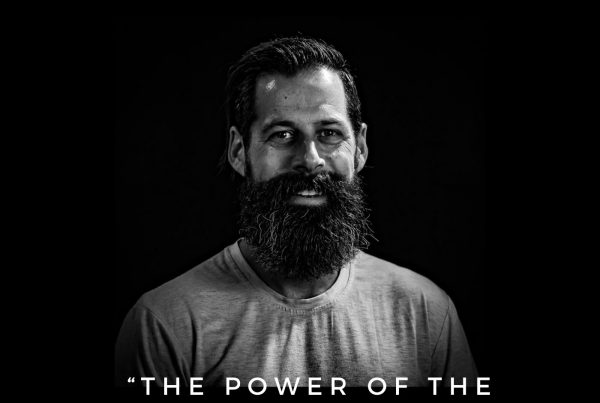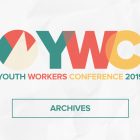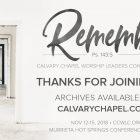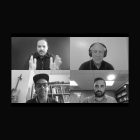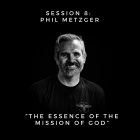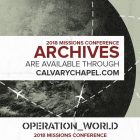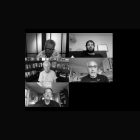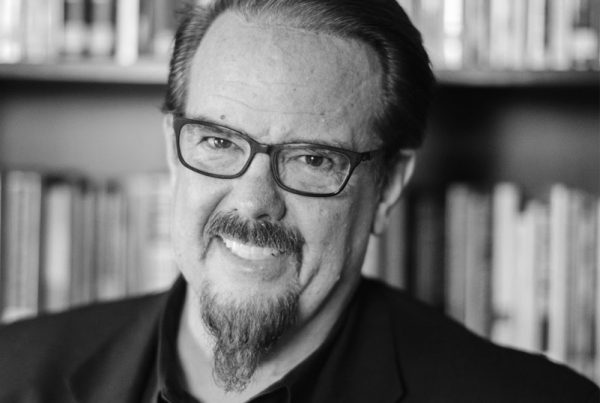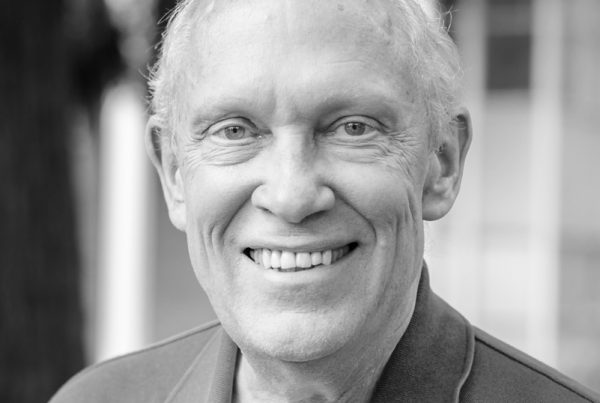“If you’re asking about the essence of it, it’s essentially spreading the message of he Gospel, which means good news. We are messengers, that’s the heart of evangelism. The emphasis first to get out there, open your mouth, and share Jesus with others.”
Audio Only
Transcript
George Scanlan: [00:00:00] All right guys, here we are for the CGN Calvarychapel.com exclusive content package for the conference. We’ve got Joel Turner joining us all the way from Canada. Joel is from Calvary Chapel Mountain Springs in Calgary, Canada. So we did this whole zoom thing because he refused to drive and do an in studio interview.
Joel Turner: [00:00:24] It was four days when I looked at it guys. So I thought, I don’t know if I want to do that, you know?
George Scanlan: [00:00:28] By wagon train or what?
Joel Turner: [00:00:30] Nope. Nope. We use zambonis. Do you know what those are? They flatten out the ice.
George Scanlan: [00:00:35] Is that how you pave your streets in Canada Zamboni machines?
Joel Turner: [00:00:38] Hey, Hey, no mocking us. If we attack you guys with our military, our Zimbabonis are the first line of attack.
George Scanlan: [00:00:46] Well, this is great, Joel just came out a new book and it’s talking about humor, but it’s doing that in the context of evangelism and sharing Christ and really, really very practical kind of stuff. But that’s exactly what we want to talk about today is evangelism for the rest of us and the practicality of evangelism.
Now you’re a unique guy in that you’ve had a lot of experience in all shapes and forms of evangelism. Everything from working with the Ravi Zacharias ministries, all the way down to just evangelizing the people that are around you. But I think the big thing here that I’m excited to talk to you about is just, how do we engage in evangelism when we’re not, you know, being asked by Ravi Zacharias: “Hey, can you evangelize people for me?”
I mean, there’s a lot of space in between, but that’s kind of some of the stuff that we want to go over today, but Kellen Criswell is joining us as well. He is the director of the Calvary Global Network and Clavary Chapel.com.
Joel Turner: [00:01:46] Very important, very important.
George Scanlan: [00:01:49] Weighty, weighty titles.
But, I’m excited to talk to both of you guys in the context of this conference. But especially with this practical evangelism in front of us. So, Joel, I guess I really wanted to hear from you about, you know, talk to me about evangelismwhat that looks like.
Talk to me about what sorts of evangelism could we be using, or maybe what are some types of evangelism that we’re walking right past and thinking that that should be left to stage evangelists and that sort of thing.
Joel Turner: [00:02:21] Yeah. Well, I think the first part, when it comes to evangelism is having the burden for the lost, you see this right when Jesus comes on to the pages of scripture, you know, He weeps over Jerusalem. He has great burden for the people. In 1993, Barna report, 89% of Christians strongly said, yes, the evangelism is our responsibility.
Then only 25 years later, and I believe it was in May 2018, Barna report, same question. Now we’re down 25%, only 64% of Christians think that it’s a responsibility for the rest of us. This is a problem. This is an issue. And I think when you start with something great, like the topic of evangelism, where you can go in so many different directions, you first have to start with. You know, God reburden our nation reburden our generation, put the passion back in me.
You know, when you talk about revival and you think of all the great things written about revival, one of my favorite things to circle the wagons back around is to revivals starts with me. Well, evangelism is the same thing. It can become this kind of out there, topic that we go, oh, good job. We have evangelists doing that for us.
But Jesus said, you are the light of the world and it’s written in the emphatic. It means you and nobody else. So don’t look around and be like, well, I hope that guy does it. It’s our responsibility, that’s the first thing I’d say, Hey,
Kellen Criswell: [00:03:41] Joel, let me jump in here. I think, that’s really helpful. And I guess I’m thinking about the person who could be potentially watching this, who maybe is a bit fuzzy on even the real essence of what we mean by evangelism.
I mean, something that we talk about a lot, me and George and people in our leadership team at Calvary Costa Mesa is how dangerous assumptions can be. Assuming when we use a common term like evangelism, that we mean the same thing, you know, it’s sorta like even the term Christian, some people think they’re Christians because they’re Americans. I don’t want to offend you as a Canadian.
Joel Turner: [00:04:21] No it’s good, I’m good!
Kellen Criswell: [00:04:22] Maybe you guys got that up there. There’s some people that think they’re Christian cause they’re Canadia, I don’t know. But the point is just, this is an age to me; it’s every age where being specific about meaning is it’s like a lost art, and it’s leading to so many challenges and trouble, you know?
And so maybe you could talk to us about that a little bit. When we use the term evangelism, what’s the essence of the idea biblically that we’re really getting into?
Joel Turner: [00:04:54] You know, boil it down. You can take the Evangelion the original word. But I think that if you’re asking about the essence of it, it’s essentially spreading the message of the good news or the gospel, which means good news. And so we are messengers, that’s the heart of evangelism. What that means is, kind of like, where Jesus says, you know, don’t take a lamp and put it under your bed. So the emphasis first to get out there, open your mouth and share Jesus with others. I would say that what we’ve seen historically over the last 25 years is a real dirge in both, one, like we already pointed out responsibility to do that. But two, I think we’ve hurt evangelism personal one-on-one. Like evangelism for the rest of us. And here’s why, because methodology or method evangelism has completely trumped personal witnessing or just sharing of our faith. Well, what do you mean by that?
Well, we’ve got all these methods out there. Now, I’m not saying they’re all bad. You’ve got the four laws; then you have friendship evangelism; then you have the way of the Master; then you have the four doors: the list goes on and on. And so again, there’s good components of some of those, and I’m not discounting them all, but what’s happened as a result of them all is we’ve taken evangelism one-on-one witnessing out of the hand of the lay person and put it into the hands of the expert. So everybody now is cheering, it’s very sport oriented in a sense where like the rest of us are in the stadium going, “h, good job, look at Billy Graham!”
But God has actually put us on planet earth for such a time as this, to reach our neighbors, to open our mouths, and to share with passion the hope that we have in us. I hope that helps clarify the conversation.
Kellen Criswell: [00:06:46] Yeah, I think it’s important. To me there’s, I hesitate to use the word deconstruction cause it’s fallen on such bad times, but there’s a little bit of deconstructing I think that we almost have to go through to understand our just assumed picture of what evangelism is.
I think a lot of people who have grown up in Calvary Chapel, for instance, if I say we should do evangelism, many of them will think, “Well, I’m not Greg Laurie.” That’s because you use this word evangelism and it’s got an associated picture it brings up in our mind or, or it might be, “”h evangelism, well, I don’t really want to go interrupt people and make them feel awkward with a tract down at the pier in Huntington beach.”
But again, I’m not even commenting on the legitimacy of those things. I’m just pointing out that you use a word, there’s an association with it that may or may not be at the heart of what we’re talking about. It might just be a form and a model that we’ve been handed. And as you’re saying, some of that is the forms and models we have been handed has been more detrimental to the average person like me sharing Jesus, which is part of the goal.
Joel Turner: [00:07:56] For sure.
George Scanlan: [00:07:57] Yeah, Joel, if you could too, connect me to the idea of evangelists, you did a great job, kind of articulating what evangelism is. But connect me with the idea of evangelists, because I think Kellen, like you’re saying in Ephesians chapter four, we get this great example of certain callings and certain things that people do, but unfortunately we’ve categorized them to the isolation of the rest of the gifted lay people. And so you, you hear that some are, are called to be apostles.
And the first thought is, “Well, that’s not me. I’m not an apostle.” Then you hear this idea of some are called to be evangelists. And you’re like, “Well, again, not me”, you know? So we relegate this to roles and to functions of certain people in church, but connect me with the idea of evangelism with just believers in general.
Joel Turner: [00:08:44] Sure. Well, I’m going to sound like people that I’ve heard for years that try to say a line where it sounds like they’re plugging their book and you’re like, “Oh, come on.” But, I actually did write about this in the book. I’ve always wondered what people were thinking when they said that I’m like, “Hold on.”
But here I am. So, yeah. Second, to the last chapter of the book, I talk about the call. When we look at evangelism, a lot of times people, what they do is they sort of frame it as “Well, that’s why we have evangelists.” So look, not everybody is called to be an evangelist, as far as we’re talking about the calling in scripture and in Ephesians of an evangelist. Those are people that, technically or typically are going to be moved around and they’re going to equip. The Bible, says they’re to equip the saints to do the work of the ministry.
So, it’s not just that we have crusade evangelists. We need those, but I mean, Jesus did crusade evangelism, which is large crowd, one person. But we also have evangelists that should equip people. So I’m not against that and it’s hard to not see that turn into methodology. I’m just saying we have to be careful whenever we walk into methodology to not get locked in our brain, because most people can’t remember the cue cards including myself.
So, that’s the first layer. There’s the call of an evangelist, but then I would say there’s the gift of an evangelist, and this is just a natural thing some people will have in church circles and maybe if you’re watching, you would identify with this. You just love to share your faith in Jesus. My wife is not an evangelist, but she’s definitely gifted in just telling people about Jesus, you know?
I would say there’s the gift of evangelism; here’s what happens for most of Christiandom, if we can use the word like that. For most of us, what happens is as we, again, just espouse those people to do what they do and we’ll, I’ll let them, you know, and we’ll just kind of carry on our simple way, but there is the commission of the evangelist or commission of evangelism and none of us escape that, and that of course is Matthew 28.
When you look at verse 19 and 20, He says, go therefore, and, that’s to all of us. There’s no sense that any of us can escape the great commission. In that sense, we are all called. I think that’s a distinguisher because you could easily leave this as something. Maybe if you’re married, you divide up roles in your house, “Well, I’ll do that. You do this, you do that.” It’s very easy to go. I don’t like that one, so you do that. Yay. It’s taken care of. But really, there’s a responsibility all of us have.
I think that I feel my calling largely is to debunk this myth that it’s only a select few that should do evangelism.
George Scanlan: [00:11:20] Yeah, so I think even with this idea of calling, yeah, we’re all called. Some people are particularly gifted, but as Christians, if we’re all called to that, then, then what are some practical ways to help people overcome this barrier of just relegating it to those that are good at it? I mean, how do you kind of put the tools in the people in your church to not say, “You know, okay. Joel is good at evangelism. So when I need somebody to share the faith, I need to go bring Joel or else the faith won’t be shared.”
How do you empower them to become those people who do that and to overcome those personal preclusions.
Joel Turner: [00:11:55] Well, you know, I promise I’ve never taught this before, but once I say this, you’re going to go: this is a three point sermon, but three B’s jumped to mind and it’s true. You’re going to go, “Oh come on, you taught this somewhere.”
Kellen Criswell: [00:12:04] By the way, the book’s called, “Humor Me.”
Joel Turner: [00:12:09] Yeah. That’s right, you should state that.
George Scanlan: [00:12:11] Yeah, call the number at the bottom of your screen here.
Joel Turner: [00:12:14] Please, right now. You could be the thousandth caller.
So basically, I’m just thinking while you’re, you know, I’m sure like you guys too, James, one talks about ask and I’m just like, Lord, how do you, what do you want to say to that?
And three B’s jumped to mind. The first one is burden. The second one is boldness and the third one is be led by the Holy spirit. Talk about, we already talked about burden. It’s asking if you don’t have that burden for God to reborn you because the gospel is central to who we are. It’s not just the good news for those that are unsaved.
It’s also good news for us who are saved. Keep coming back. And as you keep coming back to that, you want to share it. You just do. So re- burden my heart. Give me the burden for the people, neighbors. I want to have a burden. I’ve been just having so much fun during coronavirus sharing the gospel with neighbors, we’ve seen them come to church.
We’ve seen people in our parameter that we’re spreading invites out to get saved. So this should be a thing, Lord reburden me, cause this is essentially a part of who Jesus is. That’s the first thing: boldness. When you look through the book of acts, I think you guys know this well.
It’s more proper to call it the acts of the Holy Spirit through the disciples than it is just the acts of the disciples. And what we see through there, is they face kind of conflict or suffering and they pray, they’re filled with the spirit and then they speak the word of God with boldness.
So boldness is a byproduct of the Holy spirit. We need to ask the Lord to do that. That’s a topic I do address quite a bit, which is just boldness, that leads you to open your mouth. And that’s the first thing. The big battle in evangelism is going to come down to the point: a moment where you decide to open your mouth or not.
Nobody likes to break it down to that. Because it sounds unspiritual, but that’s the reality. Then being led by the spirit is what makes me decide in that moment, whether I obey the Lord to be bold and share or not because there’s times where it’s not the Holy spirit out of guy come up to me once and he’s like, Yeah.
Hey pastor Joel, I don’t know, man. The evangelism thing, I’m glad you do it because it didn’t go well for me, I said, “Well, give me your scenario, what happened?”
“I was at Starbucks. I’m at the front of the line and I start just sharing the gospel!” First, by the way he said it. You’re like, Oh gosh, why? But then he’s like: “Yeah, and then people. Yeah, I dunno. I felt like there was like angry reaction and anger.”
I’m like, “Was there anyone in the line behind you?”
He goes, “Yeah, there was a bunch of people behind me.”
And I’m like, “Dude, why would you do that, man? Like, what you should have done is buy coffee for everyone in the line. And then, and then turned around and said, that’s on Jesus. God bless you. You know, and walked out and thrown out some invites to your church on the way out.”
George Scanlan: [00:15:02] Yeah. That’s how Joel does it, right? That’s Pastor Joel’s method.
Joel Turner: [00:15:06] Exactly how I roll. Just especially that at the end with the invites. That’s so key, you guys.
George Scanlan: [00:15:12] That’s money, right?
Joel Turner: [00:15:13] Cash, yeah. Because it helps break down the walls, but you understand what I’m trying to say?
You know, when you have that moment, you get that tug that, you know, the Lord’s like, hey, open your mouth. If you do, and you pray, Lord give me a burden right now, give me the boldness right now, and then just open your mouth. God’s going to do some amazing things.
Kellen Criswell: [00:15:33] Yeah and it is an important point that sometimes, we, you know, can justify all kinds of unacceptable behaviors and approaches in the name of; people just resist the truth.
But sometimes it’s not people being offended to truth. It’s them being offended to an unnecessary approach that you took in a moment of trying to connect. Good heart, but we still can be humble and reflect on our approach and, you know, let the Holy spirit lead us in processing a different way. Right?
Joel Turner: [00:16:03] Well, that’s what you see with Philip and the Ethiopian, right? You see, he’s led by the spirit to the desert. If you know where Philip just was, he was back in the middle of a revival. So you don’t leave a revival to go witness to one guy in a desert unless the Holy Spirit’s leading. So you have to listen.
And then when he’s led, he’s going to tell you something unorthodox. And this is for everyone. Don’t forget this. He’s going to tell you something that doesn’t always make sense. He’s going to say something like, you know, run next to that car in traffic and knock on the guy’s window and give them an invite to your church.
Not that we’re suggesting you should do this, but really essentially that’s what Phillip did is that run next to that guy’s chariot. Like that’s listening to the Holy Spirit and it’s going to be outside of the box. And, you know, I went over to a neighbor’s house during Corona virus and. Now we have relationship and are now attending online services.
These kinds of obedience leads to the fruit that we’re wanting to see. But nine times out of 10, it doesn’t happen because we’re not willing to just take that first step. Cause we thought again, “Oh, I have to know all the methods, I have to know.” You don’t think of like a Luke seven 22, what does Jesus say?
“And he answered and said to them, Go and report to John, what you saw and what you heard.”
That’s it, He doesn’t say like, “You know, and the four doors and the five laws.” You know, just go tell him what you experienced, go tell them.
Kellen Criswell: [00:17:28] Yeah. And I appreciate you saying that now I want to bounce this off of you to hear your thoughts on it.
But for me, I’ve never particularly characterized myself as an evangelist, depending on the picture that we have in our minds when we say that. I might today, depending on, how I interpret some ways I’ve seen God work in my life. Regardless of that, when I was early on in the ministry as a senior pastor, not thinking I was an evangelist, one of the things that helped me was reading through the book of acts and seeing that a lot of these evangelistic moments, the substance of it was really just the apostles doing what you just said. They’re just retelling what it was like when Jesus met them and became real to them. And I remember reading that and that was so freeing. To realize a lot of this could be as simple as just retelling the story of how Jesus met us.
And as I’ve shared that with, church members, other Christians over the years who are struggled with this sense of: on the one hand, I’m feeling like I’m not Greg Laurie, or I’m not Billy Graham, but I have a burden to share the Lord, but then we start to overcomplicate it. When you can share with them, maybe you’re just doing that, over complicating it, why don’t you just share your story of how Jesus entered your life and that tends to seem like it’s freeing, but do you resonate with that? Has that been part of your journey or experiences at all?
Joel Turner: [00:18:53] Sorry, which part do I resonate with?
Kellen Criswell: [00:18:56] I think just both the simplicity of story of just bringing it back to, again, we’re talking about all these different formulaic approaches that are not bad, and God has used them. But for many of us maybe most of us it’s like, you know, again, I can’t remember the fourth point and point to be. And where does that come in here? And, and Ray comfort said, I’m doing this wrong. And you know, and it’s like, Just bringing it back to, Hey. What did Jesus do in your life? What happened there? That’s what I’m asking about.
Joel Turner: [00:19:27] Yeah, absolutely.
I think, yeah, I completely resonate with that. Second Corinthians 5:20 says we are therefore Christ’s ambassadors. Here’s the key it’s as though God is making his appeal. Through us. And that is the key guys. It’s not, Oh my goodness. What’s the mass message or the method from us.
What is the Messiah speaking through us? That’s really what you want to remember. So, I identify to opening my mouth and having train wrecks, but I would testify today that there really is no train wreck. If you go into evangelism because you’ll come out. So pump you, we’ll talk about it. You know, you don’t care about that part on your car that blew up.
If you lead someone Christ or you share the gospel with someone, check it, we get messed up. Here’s what I think is funny. I think evangelism has to be, now think about it. This is how the enemy would work. One of the most miss-talked about forms of discipleship is people tend to go, well, we shouldn’t focus-what they tend to do is to pit them against each other, we shouldn’t focus on evangelism because that’ll make us not focus on discipleship. You see what that does? It pits them against each other. Here’s what I’ve found. If you only focus on discipleship, well, then you’re like Israel in the old Testament, the manna you hoard to yourself, it gets rotten.
You have to have outflow. We all know the illustration that when you go to Israel on an Israel tour and you go to the dead sea and you see there’s no regress, there’s no outflow. So little fishies float in there, like. And then they turn sideways and float to the surface. It doesn’t die because there’s no outflow.
There’s no egress, you know, and you need inflow into your life, discipleship, but you need outflow. If you deemphasize that for the enemy, it’s great, because you get fat, legalistic christians that are all fed up on, keeping it knowledge based, but the whole outflow is evangelism. So when you see something wrong in someone’s life, they’re like: “Pastor Joel, man, my transmission blew on my car.”
It would seem ludicrous to the modern church to suggest, not that this is the solution, but what a great help. “You know what, go outside and share the gospel with someone.” Is it going to change your transmission? No, but it’ll change your perspective.
So that’s again, I know that seems a bit like, what? But what I try to get across to people is evangelism is to your blessing. How beautiful the feet are of those who bring good news. It’s not just that they’re good looking. It’s that there is a sense and an aroma of joy in your life, that deals with so much.
And yet we small size it to a part of discipleship instead of going, “Guys look at the life of Jesus!” You know, we have all of these phrases and sayings, and some of them are good and some of them are just outright hurtful, you know, there’s an online debate, which Saint said the line, “Go out, preach the gospel and if at all necessary use words.”
You’ve heard that everybody will tell you what St. Francis of Assisi and other people say. It doesn’t really matter. The point is this, we get what they’re trying to say. Let our lives speak so loudly. That you know, that we don’t have to say anything people will reflect and see Jesus in us. That’s all good. That’s a biblical principle, but not to the neglect of opening your mouth. What we see with the disciples as they went out with great boldness and shared Jesus, we don’t see Jesus ever going up to some random stranger and being like, “Mm, mm, mmm.” And them getting saved.
No, he used his mouth. So you need words as well.
George Scanlan: [00:23:06] Yeah, I’d be curious, even as we’re talking about using the words and whatnot, there are so many great methods and so many great evangelists that we can kind of emulate. I think, you know, what you were talking about about being spirit led is such an important part of this, not just in what we say or what we’re trying to remember, or in a sense whose spiritual or evangelistic language we’re trying to appropriate.
But even recognizing that if we’re being spirit led, the spirit has put us there in particular; not Ray Comfort, not Ravi Zacharias. He’s put us there. You know, for whatever story we’ve got and whatever language that we’re using, whatever seasoning that our lives have, there’s something strategic about that moment, about the Lord using us.
Talk a little bit about the idea of not trying to appropriate somebody’s method, but like Kevin was saying, you know, we’ve got our stories and we can share what Christ has done with us. But even when it comes to laying out the certain points that people need to hear to come to faith and those sorts of things , how important is it to try to remember our five point methodology? And how significant is it that the Lord’s got us there at that moment? Just in the way that we are with our backgrounds?
Joel Turner: [00:24:20] Well, you’re absolutely right. I had a surgeon come up to me once at church, “Pastor Joel, I need you to come to the hospital to share the gospel, because I like how you do it, with my surgeon friends.”
And I said, “Bro, you know, we could maybe work out some kind of surgeon outreach thing.”
I mean sure, but honestly, I don’t speak the language. I’m going to come under very low on the scale probably mentally with these guys. I mean, he’s a very high level surgeon and my response was, “Maybe just, maybe, I’m not supposed to go to everybody’s workplace, but equip you to go to your workplace. Since you’re already there, you already do. And you are among these people as one of them and share the gospel.”
We do no different. We’re finding of course, over the last 25 years, that missions works better this way. So why wouldn’t evangelism work this way? We try to hire nationalists now because we’ve figured out that works better than sending the Canadian evangelist or the American saviour.
Kellen Criswell: [00:25:22] Yes. We empower indigenous Christian leaders. Absolutely.
Joel Turner: [00:25:29] And so I think George, your point is a great one.
God has chosen you. And if you’re watching this, I want to encourage you. God has put you exactly where He wants you. There’s no mistake. And it’s not a question of waiting and praying. You know, some people are like, I’m just praying for an evangelist to join our staff team. Well, I don’t know that that’s his role.
I think it’s, you He’s put you there and He wants to equip you and its simple. You know, when we see early evangelism, we have this concept in the Bible where we, the first time-it’s called the principle of first mansion-first time something is mentioned, usually in Genesis, we learn something about it.
Well, the first time you see actual evangelism in the gospels, it’s great because it starts at such a simple level. They’re like, Hey, go find your brother. Okay. And they’re like, well, what, who is this Jesus? I don’t know. Come and see. And so this is like invitational evangelism is step one and everybody can do that.
Look, I don’t know why don’t you come?
I tell them, you should be practicing, invitational evangelism, bring people to church. You know, if at first you can’t bring them to Christ, bring them to church, but then open your mouth and trust the Holy Spirit. And he will fill your mouth. He will give you things to say, let me give you an example, because I think examples are important. And I’ve shared this before, but I think it serves its purpose.
So I had left a conference in California and I drove to Laguna beach with my wife and, we’re driving there. I just want to see the ocean. I’m like, just want to see the ocean, like guys, we’re in the prairies in Canada.
Okay. So some of you by the ocean, you take it for granted. I don’t, I’m like, let’s take the, a rental car to the ocean. So we drive to the ocean. We ask around we’re like, is there a restaurant that overlooks the water? They have us climb those stairs over there. We climb the stairs. We get up there and this is just the most gorgeous picture. Okay. You California, people, you don’t know how good you have it, and I’m just like in awe. And then I’m like the next best thing right now would be to sit down somewhere. And so I’m looking around and wouldn’t you know it, this poor Canadian from the upper cold regions ; I can’t find a single seat anywhere for me and my wife and I was grumpy.
I just finished a conference. I’m tired. I want you to know this. I’m not always in the zone to share. Okay. People are like, Oh, everyone must get saved on a flight on a plane next to you. I’m like, no, sometimes I’m watching movies want to talk to anyone. So, you know, I’m just being real and no, I’m not always on.
I hear those evangelists and like, go be real. I mean, you know, you have to be real. You’re not always in the mood, but you should always be prepared. The Bible says, so I was in this situation and I didn’t even pray, but all of a sudden I’m like, Oh, I’m just frustrated this guy over here in his twenties in a suit looks super sharp.
He goes, Hey, looking for someone. And I’m already in my flesh going, why are you talking, man? I don’t want to, you know, you know what I mean? The highs you’re just like, come on, man. Don’t talk to
them. Never think like that.
No, I know you guys don’t, but I’m saying this for the. For people watching it.
Exactly.
Not these guys. Of course not, but listen up spiritually immature people like me. So this guy starts talking to me and he’s all chit chatty. And he’s like, why don’t you sit with me? And man, if you’re looking for, I said, I was looking for a table for me and my wife. Well, you can sit with me.
“I don’t want to sit with you.” This is what I’m thinking, but I feel and sense the Holy spirit and it wasn’t like “Joel, sit with him.” It was just like this nudge in my heart. Turner, would you get out of the way? Try and do something here. Yeah. And it’s so easy just to think that right now, guys, because I’ve told this story, I dunno, probably six times in a sermon. But, every time there’s me because I am slow sometimes of picking up on the Holy spirit. But all of a sudden I was like, “Ok.”
So I sit down with this guy and then I did it again! I was like, “Okay, I got this Lord. I think you’re telling me to share Jesus with this guy.” Then I did it again. I backed up in my flesh and was like, “Wow, I don’t want to go there.”
And so he goes, “What are you doing in California?”
I was like, “I was at a conference.”
“What kind of conference?”
“Well, it was a pastors conference.”
Then right away he goes, “Oh, you’re one of them.”
and I’m like, “Ah, here we go.”
So, no, I wasn’t in the mood, twice. And then I thought, well, we’re in and I’ll share my faith.
So, I start sharing very simply with them. I did not have a script. There was no method. I just opened my mouth with boldness and shared Jesus and I thought it went great. And then the pause. Then this guy opens his mouth. He’s like 24. He’s a business leader. He’s telling me about his offshore accounts in Switzerland and he’s made all this money.
Then when I share the gospel right after that, guys, he launches into the best apologetic against Christianity I’ve ever heard in my life. I mean, it was like, wow. I mean, I got to the end, I was kind of like, see?
Kellen Criswell: [00:30:27] This is what the average Christian’s worst nightmare is.
Joel Turner: [00:30:31] Right? And I was like, maybe we got it wrong, honey.
I mean, that’s, that’s pretty good, you know? But I was just like, undone. Now guys, I want to say this because this is what we’re talking about today is evangelism for the rest of us. I don’t think this is example. This example shows you what a great evangelist does. I think this example shows you what, someone just obedient to listen to the Holy spirit.
Even the third time, do you know what I’m trying to say? Finally, I’m like, I cannot argue this guy into the kingdom, so I’m going to love this guy. And so I opened my mouth and I begin to share, and this is what I want to get people back to. We used to, I feel like I heard about it more in the eighties and nineties.
Now, I’m dating myself, but people used to say, “Man, I opened my mouth, and pastor Joel, I don’t even know what I said, but it was just straight from the throne room of God.”
Do you know what I’m talking about? We need to get back to that because we’ve gotten away from, “Oh, apparently that’s level A, but over here, if we have this method, then we can really close the deal.”
And it’s like, no, look at the disciples, look at Jesus. He starts in the natural. Then He swings to the supernatural when He talks to the disciples and He’s first talking to them, what does He talk about? He doesn’t say, “Have you ever been washed in the blood of the lamb?”
No, he says, “Hey, let’s go fishing.”
He talks to fishermen about fish when he talks to the woman at the well, and He’s thirsty, what did He ask for? A drink of water at a well.
It’s just very natural, supernatural. And I want people to come back to that where it’s simple. So I start sharing with this guy and he was undone. He, at one point, was so under the conviction of the Holy spirit, he takes his glasses and he moves them down over his eyes. Why? Cause he’s crying.
Then he’s like, “Uh, my girlfriend’s going to be here any second.”
His girlfriend comes in. She sits down and my wife starts talking to her, and he’s trying to avoid the conversation now because the Holy Spirit’s at work, guys, and we have to trust that. And so he’s trying to avoid this conversation, get out of it and I’m not letting him.
Then at one point I looked over, my wife has got her arm around this girl. She’s leading her to Christ. She’s praying with her. And I’m like, man, I’ve got to step up my game. She’s way ahead of me. So then I start preaching faster and sharing the gospel.
And this guy, I said, “Can”- I use this line. It helps them have lines like this.
“Can you see any reason right now, Nate? Why you shouldn’t come to Jesus to pray right now?”
I use that line almost every time and he goes, no. I can’t see any reason. So we pray the four of us, you know, she’d already prayed with the girlfriend. We prayed right there on the rooftop for this guy to get saved.
That’s kind of what I’m trying to get us back. My burden. I feel from the Lord for evangelism, just a simple “Open your mouth with boldness.”
George Scanlan: [00:33:21] Well, it’s funny because you know, going back to this whole methodology thing, I immediately want to know. Okay. Joel. So what did you share?
What points did you share that undid this guy?
Joel Turner: [00:33:30] I’ll tell you the secrets right now. Write this down.
Kellen Criswell: [00:33:38] Why every method before this one didn’t work.
Joel Turner: [00:33:40] Yeah, exactly. Well, it’s five steps, George.
George Scanlan: [00:33:43] It just sounds like, I mean, there’s such nuance to this whole thing. Even just like Jesus, He’s constantly just pulling examples right out of the air. It’s like, we’re in a field, look at the lilies, you know, we’re eating look at the-you know, and He’s just like grabbing the world around Him. And so, I mean, it’s less of a methodology I think than just opening up those observations.
You’re observing the Holy spirit. You’re observing what He’s nudging. You’re realizing there’s a conviction happening, but then you’re just kind of allowing the Lord to work. And that’s a beautiful thing, but I mean, that leads me then to wonder, where’s the encouragement there? Where’s the application there?
How do we for evangelism at that level? Cause it doesn’t sound like, okay, learn 10 points, learn 15 points.
These 15 points will never steer you wrong. What do you tell a guy? Like, how do you get ready for this?
Joel Turner: [00:34:33] Yeah. I think a few things first off. Let’s just point out the obvious here-we come to Christ in faith.
We’re told to walk in faith, and then we’re told to do evangelism with a fact sheet. So why? Why do we do everything out? We come in faith, it’s a step of faith. I don’t know, but I believe we reach out-Hebrews 11:6, it’s impossible to please Him without faith. Hebrews 11:1, it’s the substance of grabbing what’s not there.
So we grab it and we’re saved and it’s like, wow, this amazing adventure begins because of faith. And then we’re told that we walk by faith, not by sight. Okay. Got it. Well, we can do that. But then it comes to evangelism again and it’s like, okay, I need a fact sheet. I need some figures. I need some bullets.
So the first thing is, this is faith based like every other part of our faith. So to give you what I said would lock some people into that. Having said that, what is the best way to prepare for these kinds of conversations? It comes back to the simplicity of our faith, where Jesus says, “What I tell you in the secret, shout it from the rooftop.”
If you don’t have that secret time with the Lord, that quiet time where you’re getting filled with His spirit, His word, His love, then you have nothing to speak about. I tell people the most natural things for you to talk spiritually about are the things you just read that morning in the word of God.
So again, how many times we cycle back around guys to: it flows out of your quiet time with the Lord, every great woman or man of faith.
I love reading the biographies and they’re all the same though. You know, what is the one correlating factor between all the so-called heroes of the faith?
It has to be, well, one, they all got up early, which is annoying, but secondly, the second correlation is they had incredible times with the Lord.
And so to only separate out what they did evangelistically, “Look what William Carey did!” But to miss the devotional life is really, that is the key- like where does this flow from?
It flows from your time with Jesus. So when you get into the conversation, what are some things that you’re going to float back around to? I think that’s maybe a safe way. I’m trying to dance around this train track of faith. And then what are some actual tangibles in evangelism for the rest of us?
Well listen, it’s like, we would say fellowship without Jesus in the middle of it-is just hanging out. Right? We would probably agree. The three of us to that statement. So evangelism without Jesus in it is just-talking. So what does that mean? Jesus said, I think it’s in John 10:10, “If I’m lifted up, I’ll draw them into myself.” We know He’s talking about the cross, but even in conversation, if you lift Him up, now you’re doing evangalism. So you have to have Jesus.
Right? And if you lift him up and the cross, right, Paul says, I preach the cross, Christ crucified, well then now a drawing takes place. Now some people will repel that and you just have to be okay with that. You know, the old sales terms, some will some won’t. So what? You just kind of recognize that not everybody goes, “Oh my goodness! Where do I sign up?”
But there’s a drawing that happens by the Holy spirit. That’s going to bring some people to a T junction right away and others will go, “Hey, I want to know more.” Here’s what I’ve found too, guys, if you keep it real and you keep it loving and you actually use like humor and joy to break down walls, and yes, I talk about that in the book, but that’s so important to me.
Like we’re missing the battle to connect with people right now. So you know, that’s where people send it off to professionals. Right? We need professionals, because I don’t do good at this. And that’s just not right.
I was approached by an organization and they said to me, we are great at connecting the mind apologetically, but not so good at connecting the heart. Can you help us by using humor? Teach our teachers how to do that. And actually that’s where the whole book idea came from was this idea of what if I did this seminar? And they’re like, you need to write this in a book. But, it’s more than just being funny.
It’s just trying to be real and connect with people.
Kellen Criswell: [00:38:47] Yeah, that’s great, man. Something I’m thinking of that’s kind of tying this general picture that you’re painting of evangelism together for me is the term relational. You know, it’s not that there aren’t specifics of gospel, the components of the gospel that are not, you know, those are in the Bible, like you’re saying cross-things like this, these are real truths that have meaning and need to be woven into these moments, but that’s not necessarily formulaic. What I’m hearing is much more relational. And it’s first that you’re talking about that vertical relationship you have to God is the first thing and just the vitality, the engagement with the Lord.
Your own personal growth journey with God, as a child of God, that’s the first preparation of evangelism. And then it’s relational on this second plane, that’s horizontal. So you got the vertical relationship flowing. So when these horizontal moments come up, your relationship with the Holy spirit who’s inside of you, He meets the weaknesses in the gaps, in those moments. And I think that’s such an amazing portrait. And I think it’s so much more relatable. There’s hope for the rest of us. It’s uncomfortable, but it’s hopeful because it’s a relational God who’s not going to let us down. And He wants to use us more than we want to be used even.
Joel Turner: [00:40:17] So true.
Yeah. You know, I love that verse from the overflow of the heart. So the mouth speaks. Yeah. If you don’t have quiet time in place a time where you’re reading God’s word and talking with him in the morning and listening and praying, you don’t have much to talk about. You can talk about your problems, you can talk about your work, your sports, right? But when you have that overflow and it’s bubbling, it’s gonna come out. So, I think that’s what you’re talking about.
Kellen Criswell: [00:40:43] Yeah, and I think also connected to that story, your story, your testimony point from earlier; I’ll just share something quickly for me.
I think this relates to stirring that burden for evangelism too. You know, sometimes if we lack that burden, it’s because we forget where we came from. We forget where we were when Jesus found us. And I remember some years back, I hadn’t return to the city, Portland, Oregon, and the neighborhood where I got saved for quite some time.
I didn’t even feel like I had grown particularly cold with evangelism or whatever, but I took a trip there. As I walked the streets where I lived and remembered the person I was, and the things that shaped my life and my thinking. By being in the community where Jesus found me, it was like, He removed some dust on my vision that I didn’t even realize had accumulated.
And it was this fresh, deep, real- remembering. Of where I was when he found me. And that wasn’t for self-deprecation. It was a restoration of the joy of my salvation in a way. I didn’t even know I needed. That partly resulted in a fresh zeal for sharing the Lord and being used by Him to see other people meet Him like I did.
So again, I think that’s another piece of this, remembering where our relationship with Jesus started, for fresh fire and fuel for today. And you know, maybe somebody needs to hear that that’s listening to this. If you’re feeling a little cold, maybe you need to ask the Holy spirit to help you remember those first things where you came from, when Christ found you as a way of stirring up again.
But not to keep going on, but I want to get your take on another element of this, Joel. We’re talking about kind of a relational evangelism approach and stuff. And I think it’s probably obvious to all of us, we all agree that the Holy Spirit, and him specifically, is indwelling us, empowering us. You know, He has everything to do with all of this, but it was striking me as you were talking about some of these specific moments of evangelism- how it’s not cookie cutter. You’re kind of listening and kind of going with it and being yourself. But how it’s not even just the gift of evangelism that’s working there, it’s other gifts of the spirit like prophecy. And we probably aren’t cognitively thinking it out this way, but like, why did you know to go that direction instead of that direction in the conversation? It’s the spirit. Not just empowering evangelism, but words of wisdom, words of knowledge, words of prophecy that are working in there.
And just emphasizing again, this importance of cultivating, yes, general relationship with God, but even specifically, the ministries of the spirit in our life and through us for those moments. So, how about that? Do you resonate with that?
George Scanlan: [00:43:34] But Joel, before you answer that, going back to Philip in Acts, I mean, what did he do right first? And that’s exactly what you’re describing. He knew how to hear the spirit. He knew how to listen to the spirit and obey the spirit.
Kellen Criswell: [00:43:51] There is a prophetic word in the process of getting to the evangelistic moment.
George Scanlan: [00:43:56] Yeah, step one was the whole relationship with the Spirit. So yeah. Joel, now that I’ve not cut you off anymore, I’d love to get your answer.
Joel Turner: [00:44:03] Well, I’ll give an example of that, I guess. A few years ago, actually I think it was, might’ve been last year or two years ago, I was at creation fast, something that pastor Brian Broderson runs. As you guys know, overseas in the UK, it’s an incredible outreach, upwards of 10 to 15,000 people at it. And I have been blessed to be able to do a lot of the alter calls and sermons to lift up the gospel. I’d finished a sermon for eight. The big shed is like thousands and thousands of people. So we come off the stage.
You’re usually pretty exhausted as you guys know, you teach and you go to this little room called the green room where you kind of wait and, you know, you kind of just like recover. So, as soon as I sit down, I feel like the Lord says to my heart, Get up. Go through the door, kind of where they have security and walk to the back of the room, which is not really an easy thing at night.
Cause it’s like packed with like, yeah, 500 young adults in a mosh pit and youth everywhere. And security guards are looking at you, you don’t really want to just come off the stage and walk back out into the crowd type deal.
So I was like, “No, I’m not doing that. I’m tired. I just finished preaching the gospel, all right?” I’m like, “Yeah, no, I’ll just sit here.”
Again. Get up, go to the back of the room.
So this happened three times by the third time, I’m like “Ok.”
I go bust right through the curtains. The two security guards are like, “What are you doing?”
I’m like, uh, you know, I just kind of walked through the room. No problem.
Get to the back of the room. Thousands of people there and this usher in a bright orange Jersey. Comes up to me. He’s got two people with him.
He goes, “Pastor Joel, I was just looking for you.”
Which, why would you say that? I was on stage…like you wouldn’t? You know what I mean? And he goes, “These guys we’re forced to come here by their mom.”
Great start guys, because this is one of those, “Off you go.”
And I mean, this is the best intro ever for sharing the gospel.
“They were forced to come here. They don’t want to be here, but they missed the gospel part, which is why their mom made them come. Can you share the gospel with them?”
Oh my gosh. Wow. So, honest guys, I was overwhelmed with just the presence of the Holy spirit. And just started speaking to them. I think, fast and loud, I would never recommend this. This is why we don’t want to do too much method because it, you don’t want to follow this method at all. I was so full of the Holy spirit and I felt like God was like, You don’t have much time.
I open my mouth. The first words that came out were. “Why don’t you believe in Jesus, but like, are you crazy?”
And I was like, “Jesus, boom, boom, boom. That’s what he did on the cross. What he did for you. If you’d had been the only one on the face of the earth, he would have still come and died on the cross for you. He bled and died there in your place to take the punishment for your sin. You can’t pay for your sin. Jesus paid for it. The wages, the cost of your sin is death, but he is the substitute. He came down and lived the perfect life.”
It was like, buh, buh, buh, buh. But nobody could like scribble that down and go “Got it.”
It would come out weird. After I was done, they both have tears in their eyes.
And they’re like, “What do we do now?”
I said, “Well, you ready to pray to receive Christ?”
They’re like, “Yeah.”
They bowed their heads. They got saved right there on the spot. Now some of that might be the evangelist, but look, the story of Phillip was what? He was doing, this incredible outreach.
And God took him away from the masses to what, guys? The one. From the many to the man. God did the same with me.
He’s like, Get off the stage. I’m not done. There’s two people that matter.
I love the heart of God in that. Don’t you? Yeah. It’s just like ok, great. Yeah. Lots of people, but there’s too much emphasis in Christianity on the size of the crowd and we’re missing the person.
God is like, Yeah, that’s great. Now go. These two people, they need to get saved.
The cool part was when we’re doing it right guys, we’re catching up with what the Lord’s doing. Cause I’m at the back of the audience and they say to me, “Aren’t we supposed to get baptized now?”
And me like an idiot. “I’m like, no, that was Wednesday.”
Like, that’s what I said, you know, because I was so not prepared. But I was listening and I finally got it. Mine is not a, “Listen, I’m an evangelist. So here’s how you listen, obey immediately and move.” Mine is a, “You can still get to share your faith, even if you mess up on the way.”
And sometimes you’re just not listening, like a numbskull, like I am.
George Scanlan: [00:48:38] Man, well, it’s just crazy how significant that little unction was, where you’re going to go share. And it’s just kind of what you’re doing. Not realizing that you’re actually the shepherd of Matthew 18 or Luke 15 going after the One. You know, that you’ve been talking to this whole stage, but God wants to really, really zoom you in and you just have no idea. You know, when you’re out and about, and you’re just having these conversations when it’s this dude and he’s being, he’s bugging you, and you’re just wanting to focus on like, look, I just want to unwind and relax. Will you leave me alone?
And yet this is God coming Himself to the one, you know?
And what a, what a powerful, amazing, important part of just listening to that function even. When you’re on an airplane and you’re kind of annoyed that the guy next to you won’t quit talking. Cause you’ve got a headache, you know, but just the care of the shepherd in sending you into that moment.
So Joel, thanks so much for sharing your wisdom.
Thanks for sharing what the Lord’s given you, but, but also a lot of just really, really practical stuff. At the end of the day, ours is the job of evangelism, even if we’re not all called to be evangelists, but we want to encourage our people to step into that role, stepping out in faith into that role and allowing themselves to be the shepherd going after the one.
So, thanks so much, Joel, and again, real quick, I know this is just another opportunity, but the name of your book again, cause that does, that actually is incredibly practical for preachers. What’s the name of your book?
Joel Turner: [00:50:04] Yeah, the book is called “Humor Me” and the outline is What makes something funny? Can I grow in that? And then why does it matter to the gospel?
George Scanlan: [00:50:13] Okay. And where can people pick that book up?
Joel Turner: [00:50:16] Well, you know, it’s supposed to be released, right now, on amazon.com.
George Scanlan: [00:50:26] Okay. Awesome. Well, Joel, again, thanks so much for being here with us.
Well we’re blessed to be your friends. That’s always a fun conversation to have with you, but this has been good. So anyway for you guys, thanks so much for tuning in. We’ve got a lot more great packages coming your way with a lot of really, really great info. So stay tuned.
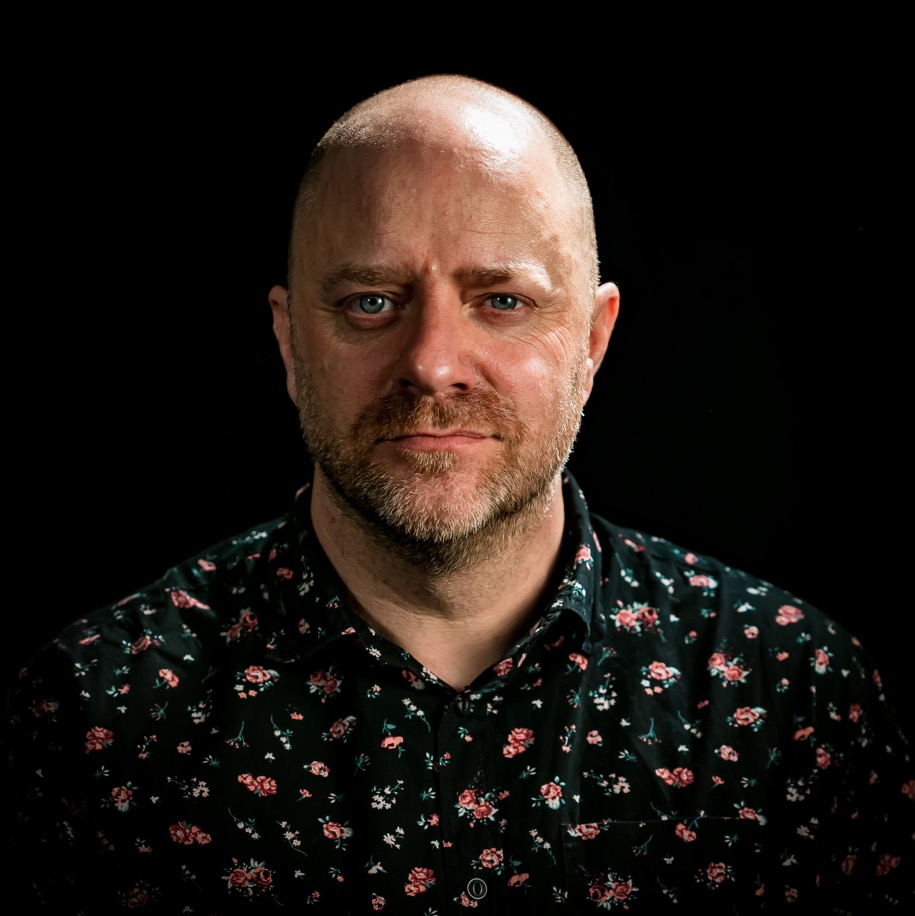
Joel Turner is the lead pastor of Mountain Springs Calvary Chapel. Prior to the Lord’s calling him into the ministry, Joel was a comedian in western Canada. His first ministry position was as a youth pastor in North Carolina, after which he returned to Canada to serve for four years on the pastoral staff at Rocky Mountain Calvary Chapel, the first Calvary Chapel in Canada. In 2017, Pastor Joel felt the call of God to strengthen the churches and do the work of an evangelist through various speaking engagements in Canada, the US, and Europe. He now divides his time between this new ministry and teaching at Mountain Springs.

